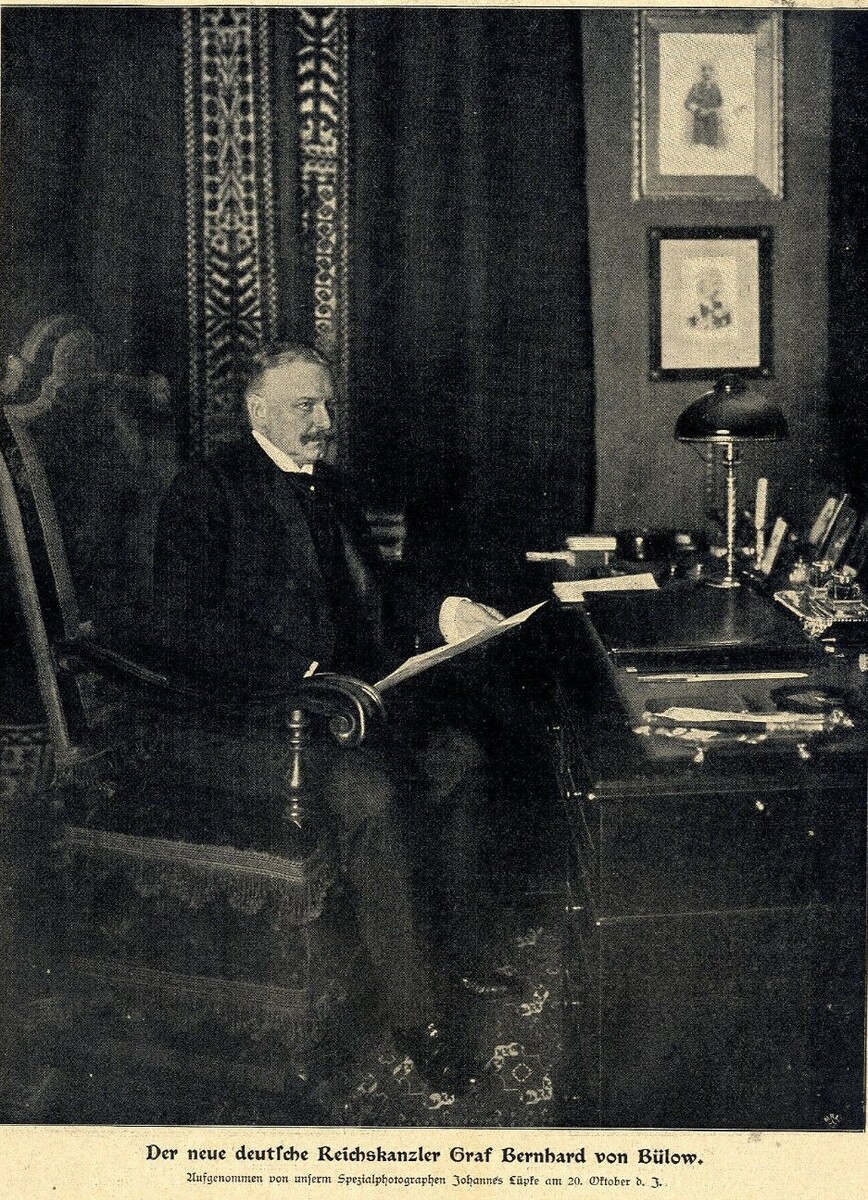Source

Source: The new Reich Chancellor Bernhard von Bülow, photo: Johannes Lüpke, Die Woche, October 1900.
Bernhard von Bülow (1849-1929) was a career diplomat from an old aristocratic family. In the 1890s he served as German ambassador in Rome. In 1897, he returned to Germany, where he was named Secretary of State for Foreign Affairs. Bülow was part of Kaiser Wilhelm's inner circle, and this association proved very helpful in his subsequent rise to the office of Reich Chancellor, which he held from 1900 to 1909. As Reich Chancellor, he is best known for formulating Germany’s Weltpolitik, an aggressive foreign policy that sought a “place in the sun” for Germany in world affairs. The relationship between Bülow and Wilhelm II deteriorated after the Daily Telegraph Affair, a scandal in which Bülow was implicated for failing to halt the publication of a controversial interview that the Kaiser gave to a British newspaper. He was forced to resign and was replaced by Theobald von Bethmann Hollweg in 1909. This picture showing Bülow at his desk shortly after his appointment appeared with an article in the weekly illustrated magazine Die Woche.

Source: The new Reich Chancellor Bernhard von Bülow, photo: Johannes Lüpke, Die Woche, October 1900.
wikimedia commons